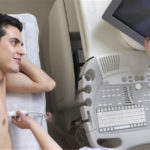
For patients diagnosed with heart or lung disease, certain lifestyle changes can help reduce health risks and improve quality of life. Cardiopulmonary rehabilitation specialists help patients understand and manage their health problems so they can live longer and do more.
Cardiopulmonary rehabilitation specialists work with patients who have been diagnosed with asthma, emphysema, chronic obstructive pulmonary disease, angina, coronary artery disease, heart attack and other conditions.
Cardiopulmonary rehabilitation specialists often meet their patients for the first time just after initial diagnosis or a health crisis, such as a heart attack. Once the patient has been stabilized, the cardiopulmonary rehabilitation specialist is called in to:
- Make sure the patient understands her condition and her medical regimen
- Explain when the patient can safely resume normal activities
- Identify unique risk factors, such as hypertension, smoking, poor diet and being overweight, that may be contributing to the patient’s health problems
- Suggest interventions, including medical treatments and lifestyle changes, to reduce health risks
- Educate and support the patient in making key changes, such as eating healthier foods, quitting smoking and increasing physical activity
- Design and monitor an appropriate, customized exercise program
Improving diet, losing weight and taking certain medications can help patients reduce their health risks and enhance quality of life. While patients are usually motivated to make healthy changes following their initial diagnosis of heart or lung disease, many revert to old behaviors as time goes by. The cardiopulmonary rehabilitation specialist aims to keep the patient motivated by providing ongoing information and positive support.
Working Conditions
Cardiopulmonary rehabilitation specialists work in hospitals, outpatient clinics and rehabilitation centers. They may meet with patients in an office, an exam room or a supervised exercise facility.
They usually work standard business hours, although they may meet patients and supervise group exercise programs during the evening or on weekends.
Salary Range and Outlook
Cardiopulmonary rehabilitation specialists are often trained in other fields as well, such as nursing, exercise physiology or physical therapy. Their salaries vary widely, depending on their level of training and where they work.
As an entry-level cardiopulmonary rehabilitation specialist, you might expect to earn between $18,000 and $30,000 a year.
Academic Requirements
To become a cardiopulmonary rehabilitation specialist, you can first train as an exercise physiologist, a registered nurse, a physical therapist or a respiratory therapist.
There is no individual certification for cardiopulmonary rehabilitation specialists, but the American Association of Cardiovascular and Pulmonary Rehabilitation (AACVPR) certifies facilities that provide cardiopulmonary rehabilitation services. To gain experience in this field, look for employment in an AACVPR-certified program.
AACVPR also sponsors scholarships and internships for students who are interested in pursuing careers in cardiopulmonary rehabilitation.
Resources
- American Association of Cardiovascular and Pulmonary Rehabilitation
- American Association of Heart Failure Nurses
- American Heart Association: Cardiac Rehabilitation page
